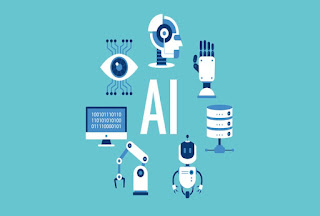Artificial Intelligence (AI) has been one of the most transformative technologies of the 21st century. In recent years, AI has made tremendous progress and has been integrated into various aspects of our lives, including healthcare, finance, transportation, and entertainment. This article will explore the recent developments in AI and their potential impact on society.
One of the significant breakthroughs in AI is the development of deep learning algorithms. Deep learning algorithms use neural networks to analyze vast amounts of data and identify patterns that humans cannot detect. These algorithms have been used in various applications, including image and speech recognition, natural language processing, and autonomous vehicles.
Another significant development in AI is the emergence of generative models, such as Generative Adversarial Networks (GANs) and Variational Autoencoders (VAEs). These models can create realistic images, videos, and audio by learning the patterns in the data they are trained on. Generative models have been used in the creation of virtual assistants, chatbots, and virtual reality applications.
In recent years, AI has also been used to develop more sophisticated robots. These robots can perform complex tasks, such as assembling products, assisting in surgeries, and exploring the depths of the ocean. The integration of AI and robotics has also led to the development of autonomous systems that can operate without human intervention.
One of the most significant concerns regarding AI is the potential impact on the workforce. As AI and robotics continue to advance, many jobs may become automated, leading to significant job losses. However, some experts argue that AI will create new job opportunities, particularly in areas such as data analysis, software development, and robotics.
Another concern regarding AI is its impact on privacy and security. AI systems collect vast amounts of data, including personal information, which can be used for malicious purposes. As AI becomes more prevalent, there is a growing need for regulations to protect personal data and prevent the misuse of AI technology.
One of the most exciting applications of AI is in healthcare. AI algorithms can analyze vast amounts of medical data, including patient records, images, and genetic information, to improve patient outcomes. AI can help healthcare providers diagnose diseases, develop personalized treatment plans, and identify potential health risks before they become severe.
AI has also been integrated into the financial sector, where it is used for fraud detection, risk assessment, and investment analysis. AI algorithms can analyze financial data, such as market trends and customer behavior, to make better investment decisions and manage risk more effectively.
In transportation, AI has been used to develop self-driving cars and improve traffic flow. Self-driving cars use AI algorithms to navigate roads and avoid accidents, while AI-powered traffic management systems can analyze traffic data and adjust traffic flow to reduce congestion.
AI has also made significant advancements in natural language processing, which enables machines to understand and process human language. This has led to the development of virtual assistants, chatbots, and language translation software, which are becoming increasingly common in everyday life.
Despite the many benefits of AI, there are still significant challenges that need to be addressed. One of the most significant challenges is the lack of transparency in AI algorithms. Many AI algorithms are highly complex and difficult to understand, which can make it challenging to identify errors or biases in the decision-making process.
Another challenge is the lack of data privacy and security. As AI systems collect and analyze vast amounts of data, there is a risk that personal information could be misused or stolen. It is essential to develop regulations and standards that protect personal data and ensure that AI systems are used ethically and responsibly.
In conclusion, the development of AI has been one of the most significant technological advancements of recent years. AI has the potential to transform many aspects of our lives, from healthcare and finance to transportation and entertainment. However, as AI continues to advance, it is essential to address the challenges and ensure that it is used ethically and responsibly to benefit society as a whole.

